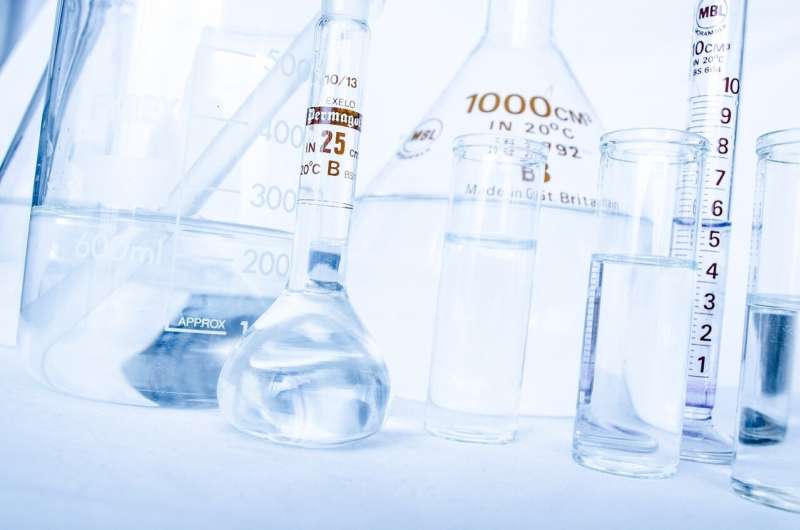Proton solid oxide electrolytic cell facilitates non-oxidized dehydrogenation of ethane

Ethylene is an important petrochemical raw material. Its output is a symbol of a country's petrochemical production capacity and level. Due to the oxidation and dehydrogenation of ethane, it is difficult to control the oxidation degree, and the side reactions mostly make ethylene less selective.
In a study published in ACS Catalysis, a research group led by Prof. XIE Kui from Fujian Institute of Research on the Structure of Matter (FJIRSM) of the Chinese Academy of Sciences reported a coupled system in which a new process of non-oxidized dehydrogenation of ethane to ethylene was realized in proton conductive solid oxide electrolytic cell.
The researchers found that ethane was electrocatalyzed to ethylene and protons (C2H6→ C2H4 + 2H+ + 2e-) at the anode, and the protons were "extracted" by electrolyte to the cathode to form hydrogen (2H+ + 2e-→ H2). When CO2 and proton react at the cathode, CO (CO2 + 2H+ + 2e-→ CO + H2O) is generated. CO2 is reduced to CO fuel, and the overpotential between the two electrodes is reduced, thus the dehydrogenation efficiency of ethane is greatly improved.
Electrochemical "extraction" of protons achieves efficient non-oxidative dehydrogenation of ethane to ethylene. At atmospheric pressure, 700℃ and 0.8 V, the conversion rate of ethane is up to 75.2%, the selectivity of ethylene is ~100%, and the performance of 100 hours of operation is not attenuating.
Besides, experimental and theoretical results revealed that by doping Nb1.33(Ti0.8Mn0.2)0.67O4-δ (NTMO) and riveting the growth nanometer NixCu1-x alloy on the surface in situ, and the metal-oxide interface system was constructed to enhance the electrocatalytic activity and carbon deposition resistance of ethane conversion.
This novel electrocatalytic process realized not only the non-oxidation dehydrogenation of ethane to ethylene, but also the reduction and high value utilization of CO2, which has economic and sustainable development potential. This study provides an efficient and reliable electrochemical method for the conversion of C2H6, and paves a new way for the conversion of other alkanes.
More information: Xirui Zhang et al. Electrochemical Dehydrogenation of Ethane to Ethylene in a Solid Oxide Electrolyzer, ACS Catalysis (2020). DOI: 10.1021/acscatal.9b05409
Journal information: ACS Catalysis
Provided by Chinese Academy of Sciences

















